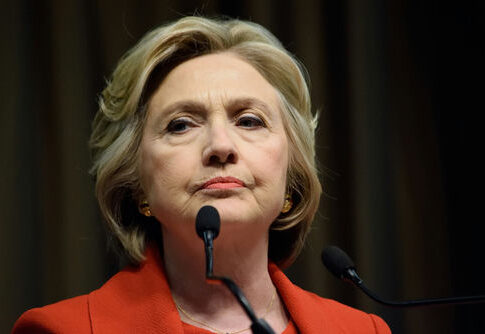Are we witnessing a scandalous revelation or just another political circus? Allegations that Hillary Clinton used tranquilizers during the 2016 presidential campaign have resurfaced, sparking intense debate and controversy.
A Resurfacing Controversy
The political landscape is no stranger to scandals and allegations, but the recent claims about Hillary Clinton’s health during the 2016 presidential campaign are causing quite a stir. According to declassified intelligence documents, Russian operatives allegedly gathered sensitive health information about Clinton, suggesting she was using “heavy tranquilizers” daily. Tulsi Gabbard, now serving as Director of National Intelligence, unveiled these documents in a high-profile White House briefing, reigniting partisan tensions.
The timing of these revelations is significant. With the 2025 political climate already charged, the focus on Clinton’s health and the potential political motivations of these claims are driving heated discussions. Critics argue that this is yet another attempt to discredit the former Secretary of State, while supporters of Gabbard and Trump emphasize the need for transparency in election-related matters.
Key Players and Motivations
In this unfolding drama, several key figures and organizations are at the forefront. Hillary Clinton, the primary target of these allegations, has yet to directly comment, but her allies are quick to dismiss the claims as unfounded. Meanwhile, Tulsi Gabbard aims to shed light on what she sees as critical intelligence mishandling. The Russian intelligence agency, SVR, allegedly involved in obtaining the information, is speculated to have motives linked to U.S. election interference.
Read this about Hillary lol. Hillary was suffering from intensified, psycho, emotional problems, including uncontrolled fits of anger, aggression, and cheerfulness. Hillary was placed on a daily regimen of heavy tranquilizers. pic.twitter.com/tm43trTIJq
— Catturd ™ (@catturd2) July 23, 2025
Partisan divisions are evident, with Gabbard and Trump-aligned figures challenging the legitimacy of past intelligence assessments under the Obama administration. On the other hand, Clinton’s allies and Obama’s office have labeled the allegations as distractions, lacking any substantive evidence. This dynamic reflects ongoing power struggles in U.S. politics, where accusations and counter-accusations are commonplace.
Current Status and Reactions
As of now, the allegations remain largely unsubstantiated by independent evidence. Gabbard has referred any questions about potential criminal charges to the Department of Justice, yet no formal investigations have been announced. The media has been quick to cover the story, but reports consistently highlight the lack of concrete proof and the politically charged context.
Recent statements from Obama’s office dismiss the claims as “ridiculous,” reiterating that while Russian interference in the 2016 election is a consensus, manipulating votes was not part of it. Clinton’s camp remains largely silent, possibly opting to avoid giving credence to what they consider baseless accusations. The narrative is still evolving, with public trust in intelligence agencies and political leaders potentially at stake.
Long-term Implications
The release of these declassified documents could set a precedent for using intelligence information as a political tool. The debate over the politicization of intelligence and election security is likely to persist, influencing future campaigns and candidates’ willingness to disclose health information. The reputational impact on Clinton and her associates remains a concern, as does the credibility of the U.S. intelligence community.
🤣 NOWWW it all makes sense.
“Hillary’s psycho-emotional problems, uncontrolled fits of anger, aggression, and cheerfulness and that then-Secretary Clinton was allegedly on a daily regiment of heavy tranquilizers”
🍿 ENJOY THE SHOW 🍿
👉 PAIN 👈@HillaryClinton pic.twitter.com/AveAZd3xxa
— NewsTreason Channel 17 (@NewsTreason) July 23, 2025
Socially, the allegations contribute to increased polarization and misinformation spread, affecting public discourse. Politically, the legitimacy of past and future elections is under scrutiny, raising questions about the role of intelligence in shaping public opinion. The media faces challenges in responsibly reporting on such politically charged allegations, balancing transparency with the need for verified information.

